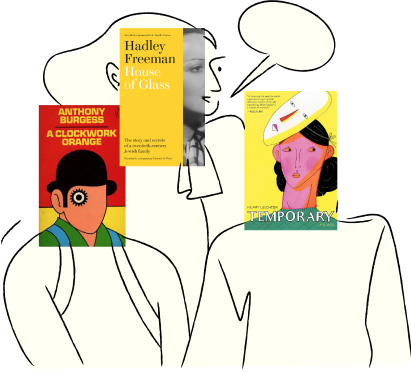Why You Should Read Dante Now
This guest post was reprinted with permission from author and scholar Joseph Luzzi, who makes a compelling case for why you should read Dante now. Just this week, Luzzi has just kicked off his public Dante Summer Seminar conducted in an interactive format via Zoom. It isn't too late to register for the next sessions on Purgatory or for the entire seminar.
Why should we read Dante? The question is one I often think about, and not just because Dante has been my intellectual and creative “go-to guy” for thirty years now. To me, Dante is much more than an "academic" author for scholars – I think his work can be a meaningful part of all readers' lives. In my book In a Dark Wood: What Dante Taught Me About Grief, Healing, and the Mysteries of Love, I described how reading Dante helped me get through an especially difficult period of personal loss that I first discussed in an essay for the New York Times.
As I tried to show in my writings, Dante invites us into the essence of his "life’s journey" in the three remarkably suggestive opening lines of Inferno, “Hell,” the first of the three canticles of The Divine Comedy, a 14,233-line poem on the state of the soul. We will all find ourselves in a dark wood one day, these lines tell us, all reach our crisis point.
It could be the death of a loved one, a crushing career disappointment, an illness—misfortune is unfortunately democratic, opportunistic, and ruthless. But, if we read ahead in Dante’s magnificent epic, we will also learn that it’s not what lands you in the “dark wood” that defines you, but rather how you find your way out of it.
Dante wrote those opening words a few years after his ultimate “dark wood” moment: exile from his beloved hometown of Florence in 1302. His city was involved in a civil war, and Dante ended up on the wrong side, making a very powerful enemy, Pope Boniface VIII. Because of a split within his own Guelph party, he was exiled, forced to spend the next and last two decades of his life wandering the Italian peninsula, always longing to return to Florence, never feeling quite at home. But what a gift he left us with.
In Herman Melville’s Moby Dick, the protagonist Ishmael says that a whaleboat was “my Yale College and my Harvard”; I would say the same for Dante’s Comedy. I’ve learned from it endlessly, unceasingly for three decades now, ever since I first read it as an undergraduate, and even now when I find myself teaching it to undergraduates as well as other groups of all kinds. Reading Dante can be a humbling experience because he references everything from the Bible and medieval philosophy to the Latin poets and the tortured political history of the Italian city-states. But if you hang in there long enough, at a certain point you will feel the poetry of his work, and realize that it’s not Dante’s erudition or religious vision that makes him one of the truly greatest writers of all time—it’s his humanity.
A profound understanding of human suffering and the sense of how life’s challenges can feel overwhelming suffuse those opening three lines of Inferno. Then in the cantos that follow we learn how to hold onto hope and continue to believe in the transformative power of love, as we make our way slowly out of the dark wood and toward the word that ends each of his three canticles: le stelle, the stars.
Just this week, Luzzi kicked off his public Dante Summer Seminar conducted via Zoom, in which readers can join him to read The Divine Comedy in an interactive format throughout June. He recommends the following translations, all of which can be purchased through June at 15% off with code DANTE.
The 2002-2008 Penguin translation by Robert and Jean Hollander:
Joseph Luzzi is the author of five books, including his memoir In a Dark Wood about how The Divine Comedy shepherded him through the dark wood of grief and mourning. His most recent book, Botticelli’s Secret: The Lost Drawings and the Rediscovery of the Renaissance was selected by the New Yorker as one of the best books of 2022.


